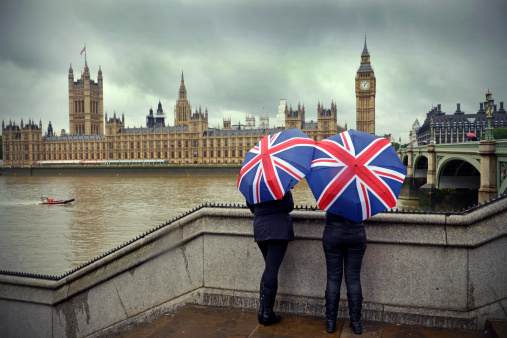We live in turbulent political and social times, though positive change can often come from such an era. Things- and ideas- that people once took for granted are now under pressure and being questioned. This is not entirely a bad thing, as no country can be preserved in aspic for ever. But neither do we want the good things about our country and society thrown on the scrap heap.
Our United Kingdom is definitely having its very existence challenged by those who would like its break-up and decline. Some are hard-core EUrophiles, who are desperate for BrExit to be a costly failure and for us, or what’s left of us, to be forced to go cap-in-hand back to Brussels. Scottish nationalists promote a separatist agenda. Cultural warriors of the woke Left denounce our history and heritage, claiming that Britain is a nasty, racist country. Enthusiasts for national guilt and shame, they have a dislike of British nationhood. Healthy self-examination and re-evaluation is one thing, but endless self-denigration is quite another.
I can’t help feeling this partly has roots in Britain once having been the worlds “top dog”. Many past sins, the real, the exaggerated and the imagined, are laid at our door. Slavery is a good example, with many a statue under threat from the topplers. Our leading role in banning slavery is of course over-looked.
Our history is being re-written, if not erased, to suit the views and prejudices of today. I’ve always thought it absurd to judge people from centuries ago by todays changing fashions and standards. People held views that were common at the time (though wrong by common consent today) and that they were brought up to believe in. Yes, we have a complex and contested history and heritage. Our Empire, for example, wasn’t all good- indeed there was much wrong with it- but its legacy hasn’t been all bad either. Niall Fergusons’ masterly book Empire: how Britain made the modern World is worth a read.
The UK, in sharp contrast to the EU, has quite rightly facilitated and enabled a devolution of powers away from the centre and to its Nations. Away from Westminster, and to Belfast, Edinburgh and Cardiff. (Ironically, this has given the separatists a UK created platform). The German and Italian ‘unifications’ in the 19th century of smaller states and principalities have resulted today in both being at least federal, if not unitary, states. The UK must be seen as more than just a federal state (as the USA is), but as a Union of 4 distinctive Nations with a common and shared language, history, economy, currency and interests.
There are, in my view, 4 main benefits to UK membership:
£ A Single economic and trade area: fish bought in Aberdare (S.Wales) supports jobs in Aberdeen. Whisky drunk in London supports jobs in Highland distilleries. Scotland exports 3 times more trade to the rest of the UK than it does to the EU (60% to UK, 20% to EU and 20% to rest of the World).
£ A Defence and security partnership: we defeated the Nazis, liberated the Falklands, won the Cold war and are members of NATO together. Let us not be complacent in an increasingly uncertain and insecure world. Scotland has an RAF Base, a large naval base (with 7000 jobs) and proud Regiments in the British Army.
£ A Combined resources, tax, spending and borrowing base. The UK only needs eg one set of Embassies around the world and one Army. The devolved Nations contribute to the UKs joint tax base of course. However, they all receive a funding dividend from UK membership. See here: https://www.gov.uk/government/news/new-release-shows-the-value-of-the-union-to-the-nations-of-the-uk
£ A Stable and successful Currency union- the SNP have of course never answered what currency they’d want?
I spent 10 years working at the City office of one of the Scottish financial groups. Travelling regularly up to Scotland, I had no problem in understanding that Scotland is already a proud Nation. Similarly with Wales, both have a distinctive culture, feel and heritage. It took nothing more than the passionate crowd at Cardiff to see England play Wales at rugby to reinforce that point. (It was one of the few times England have won there!).
N.Ireland too has a distinctive heritage and history. Whilst in 'Derry during the troubles, you could tell what part of town you were in by the coloured kerbstones- either red/white/blue or green/white/orange! We should remember that we are the United Kingdom of Great Britain and N.Ireland. Currently, it is very much in the news over BrExit and trade related issues. I trust these can be resolved by further negotiation, but we should not hold back from triggering Article 16 if needed.
Our shared history, interests and sense of belonging need more emphasis. There is more progress to be made in promoting a common and equal British citizenship, with a shared national identity. In such an increasingly diverse society, this is one thing that we all have in common. This should be open to everyone who is here legally, irrespective of race, religion or heritage. There can be no 2nd class citizens, and we also need to make more progress in spreading opportunity and prosperity wider. The ‘levelling-up’ agenda sounds a good idea, though it needs to be fleshed out more. I also worry that a lot of the public money that might have been used to ‘prime the pump’ has been spent on COVID lockdowns and furloughs.
International surveys show we are one of the least racist and most accepting countries in the world. However, as with all countries it must be said that racial discrimination is still with us, with some recent examples that have left us shaking our heads.
We need to control our borders better, and have yet to “take back control” of them. If a club can control who comes in, it can be more relaxed about what its members get up to. We need to know who’s in the country (tho ID cards are still controversial).
The recent ‘Battle of Ideas’ festival in London highlighted many issues. We are indeed facing an ideological battle, with the recent emergence of extreme political and cultural protest groups. Many of them are on the Left, with anti-capitalist, anti-British and indeed anti-Western views. Together with separatist forces, they are happy to attack the idea and existence of a British state. However don’t write off our tiny far-Right either, with a potential for ‘lone-wolf’ violence.
Their tactics go beyond the normally accepted bounds of legitimate and peaceful protest. Differing views are not merely disagreed with, but demonised. Attempts are made to shut down debate and people can now be ‘cancelled’ or lose their jobs because they have expressed the ‘wrong’ opinions.
The agenda of ‘identity politics’ seeks to divide and segregate, rather than unite. Some of it is an understandable response to past injustices. But it has never been more than a minority pursuit, with no majority or electoral mandate. For years, us Euro-sceptics were written off as ‘cranks, loonies and closet racists’, and we were certainly not allowed anywhere near the BBC! But it then turned out there were 17.4 million of us and we were the majority.
We do need further reform- for example, the House of Lords is now unsustainable in its current format. The Government has made a good start with eg it Universities Bill, that will require Unis to facilitate free speech. However in my view we need a wider law, requiring all public bodies to actively promote (not just allow) free speech and debate. It should also be made illegal to lobby for someone’s sacking, or removal from social media, for expressing a legal opinion. Legitimate criticism is one thing, but trying to destroy careers is another.
We’ve had a political system that has evolved gradually over time, within a common framework rather than by sudden revolution. The risk now is those of us on the more small-c conservative , or classical liberal, side of things could find ourselves being slowly but surely squeezed out of the public square. The ‘battle of ideas’ and for the UK continues. Let’s make sure we are standing up and being counted.
 Email Tim
Email Tim


